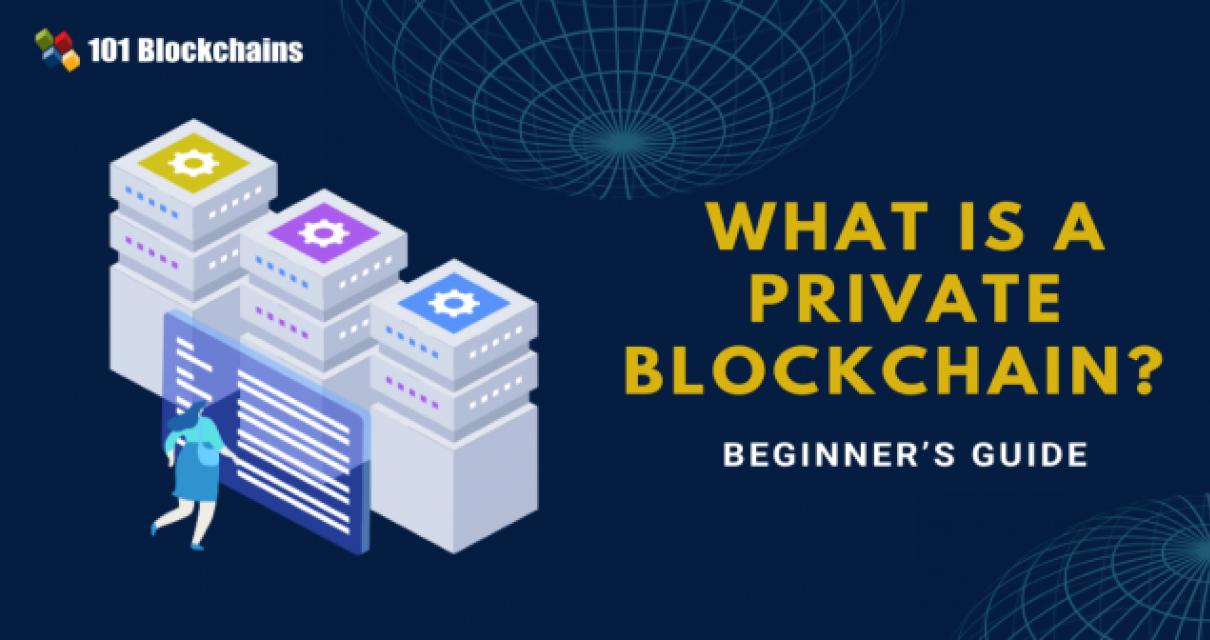What Is A Private Blockchain?
A private blockchain is a blockchain that is not open to the public. Private blockchains are typically used by businesses to keep track of transactions and secure data.
The Benefits Of A Private Blockchain
A private blockchain offers a number of advantages over public blockchains. These advantages include:
1. Increased Security
A private blockchain is more secure than a public blockchain because it is not open to the public. This means that it is not possible for anyone other than the nodes in the network to access or modify the data.
2. Increased Speed
A private blockchain can be faster than a public blockchain because it does not need to wait for a consensus from the network of nodes. Instead, it can process transactions directly.
3. Increased Flexibility
A private blockchain can be more flexible than a public blockchain because it is not limited by the rules set by the governing body. This means that it can be designed to meet specific needs, such as increased security or speed.
4. Increased Privacy
A private blockchain can be more privacy-friendly than a public blockchain because it is not open to the public. This means that the data on the blockchain is not available to the general public.

The Drawbacks Of A Private Blockchain
There are a few potential drawbacks of using a private blockchain. The first is that not everyone will have access to the blockchain, which could limit its usefulness. Another potential drawback is that the data on the blockchain is not always transparent, meaning that it is difficult to verify or audit.

How A Private Blockchain Works
A private blockchain is a secure, tamper-proof distributed ledger that allows parties to conduct transactions without the need for a third party. Transactions are verified by network nodes and recorded in a chronological order. Private blockchains are often used for the management of assets, such as digital currencies, property rights, and shares.
Who Can Use A Private Blockchain?
A private blockchain can be used by businesses that want to keep their data and transactions confidential.
When To Use A Private Blockchain
There is no definitive answer to this question, as it depends on the specific use case. Some possible times when a private blockchain might be appropriate include:
When a company wants to create a tamper-proof record of its transactions
When a company wants to create a decentralized platform for issuing and trading securities
When a company wants to create a secure digital ledger for tracking the ownership of assets

Why Use A Private Blockchain?
A private blockchain is a blockchain that is operated by a specific group of people or organizations. This type of blockchain is often used for transactions between two parties that are not affiliated with the public blockchain network. Private blockchains are often more secure than public blockchains because they are not open to the public and are only accessible by those who are authorized to use them.
Private blockchains can be used for a variety of purposes, including tracking the ownership of digital assets, facilitating transactions between businesses, and protecting against cyberattacks. They can also be used to create a decentralized platform for applications such as peer-to-peer payments and file sharing.
Benefits of using a private blockchain include:
Increased security: Private blockchains are more secure than public blockchains because they are not open to the public and are only accessible by those who are authorized to use them. This prevents unauthorized users from accessing the data stored on a private blockchain, which can protect the data from cyberattacks.
Private blockchains are more secure than public blockchains because they are not open to the public and are only accessible by those who are authorized to use them. This prevents unauthorized users from accessing the data stored on a private blockchain, which can protect the data from cyberattacks. Increased transparency and efficiency: Private blockchains are designed to be more transparent and efficient than public blockchains. This means that they can process transactions faster and easier than public blockchains.
Private blockchains are designed to be more transparent and efficient than public blockchains. This means that they can process transactions faster and easier than public blockchains. Increased flexibility: Private blockchains are more flexible than public blockchains because they allow for more customized and individualized solutions. This makes them ideal for applications that require more specific and customized features than what is available on public blockchains.
Private blockchains are more flexible than public blockchains because they allow for more customized and individualized solutions. This makes them ideal for applications that require more specific and customized features than what is available on public blockchains. Reduced costs: Private blockchains can be more cost effective than public blockchains because they are not open to the public and do not require the same level of security as public blockchains.
There are several ways to create a private blockchain. One way is to use a blockchain platform such as Ethereum or Bitcoin. Another way is to use a decentralized platform such as Hyperledger Fabric or EOS.
What Are The Alternatives To A Private Blockchain?
There are a number of alternatives to a private blockchain, each with its own advantages and disadvantages.
The first alternative is a public blockchain, which is open to all members of the community and can be accessed by anyone. This makes it easier to verify transactions and allow for wider adoption. However, public blockchains are less private and can be more vulnerable to attacks.
The second alternative is a consortium blockchain, which is a group of authorized participants who come together to create a shared ledger. This allows for greater security and scalability, but it can be more difficult to manage and requires a higher level of coordination.
The third alternative is a mesh network, which is a network of nodes that share information and can communicate with each other without any centralized authority. This makes it difficult for attackers to infiltrate the network and disrupt operations. However, mesh networks are not as secure as private or public blockchains and can be slower.
The fourth alternative is a hybrid blockchain, which is a combination of different types of blockchain technology. This allows for greater flexibility and scalability, but it can be harder to develop and maintain.